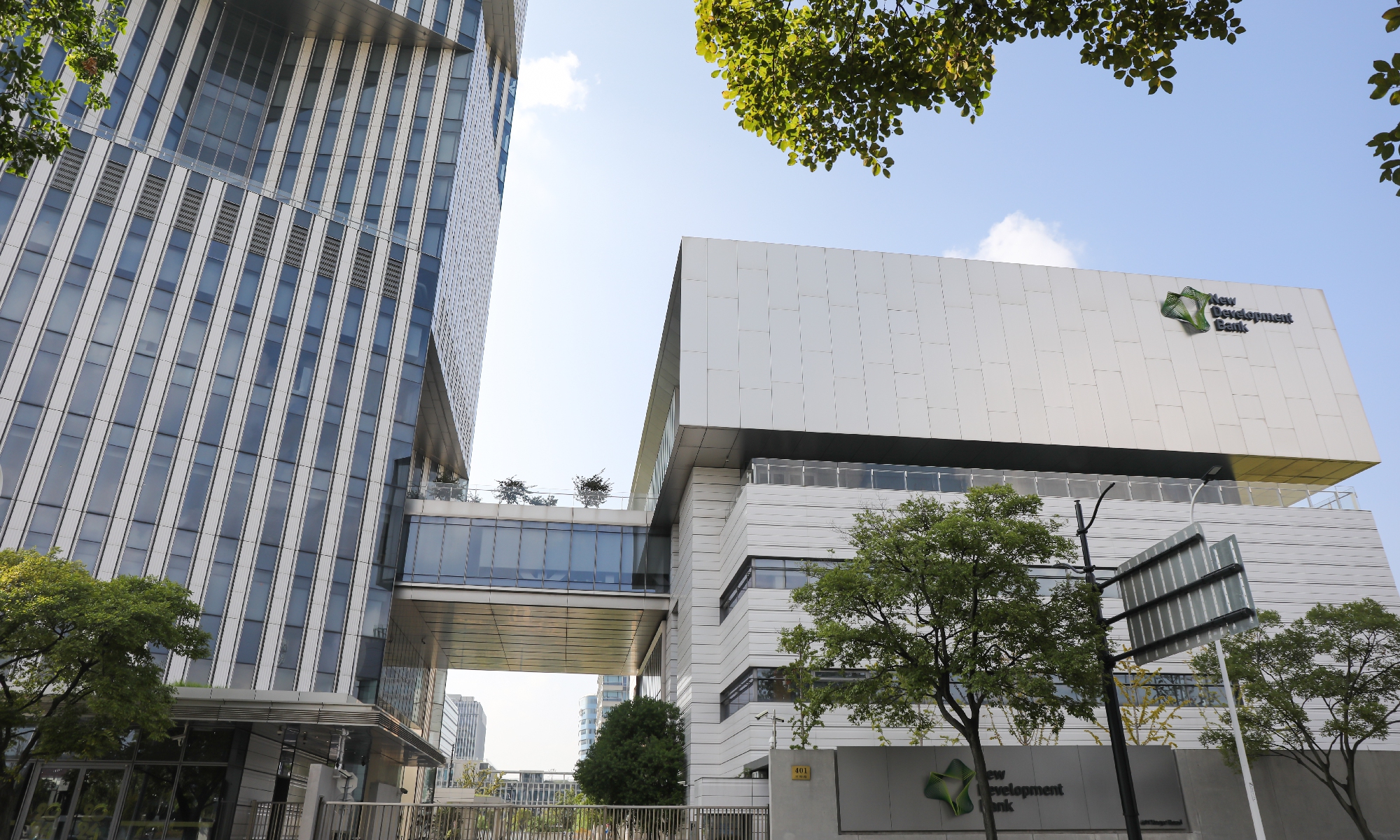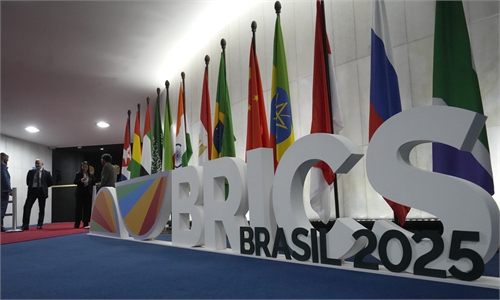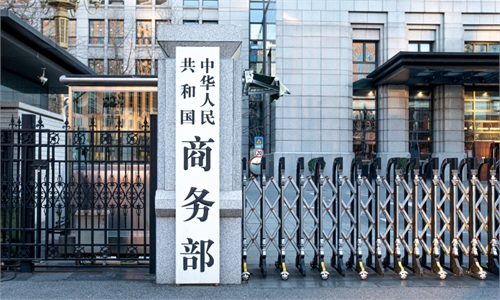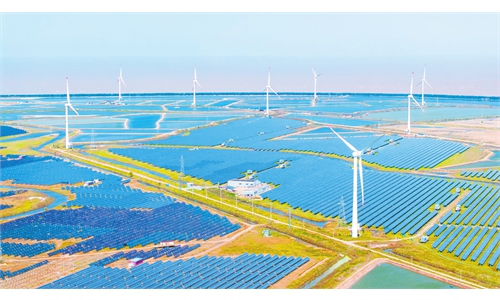
This aerial photo taken on September 8, 2024 shows the headquarters building of the New Development Bank in East China's Shanghai. Photo: VCG
Colombia and Uzbekistan have joined the New Development Bank (NDB), expanding the membership of the multilateral lender commonly known as the BRICS Bank, the institution's president, Dilma Rousseff, announced in Rio de Janeiro, Brazil on Saturday (Brazilian time), the Xinhua News Agency reported on Sunday.
A Chinese expert said that the addition of more members showcases the inclusiveness of the NDB, which will increase the vitality of the multilateral bank and thereby boost the development of the Global South.
The announcement came at a press conference held after the 10th meeting of the NDB's board of directors, it said.
The bank's board approved the accession of the two countries, bringing the total membership to 11 - Brazil, Russia, India, China, South Africa, Bangladesh, the United Arab Emirates, Egypt, Algeria, Colombia and Uzbekistan.
"We have several other countries under observation and review, and they may join the bank in the future," said Rousseff, adding that negotiations remain confidential as per the board's decision.
Noting that the bank's mission is to serve the Global South, she said that the NDB aims to finance innovation, science and technology to help BRICS countries meet the demands of the Fourth Industrial Revolution.
"The inclusion of more countries from different regions enhances the regional representation of the multilateral bank, as the bank aims to become a leading provider of solutions for infrastructure and sustainable development for emerging market economies and developing countries," Song Wei, a professor at the School of International Relations and Diplomacy at Beijing Foreign Studies University, told the Global Times on Sunday.
With more countries joining the NDB, the platform will be bigger with greater vitality and more efficiency, Song said, noting that the inclusion of more countries will bear pragmatic meaning for boosting mutual growth and safeguarding multilateralism amid a complex and volatile international landscape.
Established in 2015 by BRICS countries - Brazil, Russia, India, China and South Africa - the NDB is a multilateral development bank aimed at mobilizing resources for infrastructure and sustainable development projects in BRICS and other emerging market economies and developing countries, according to the website of the NDB.
"As global economic growth momentum weakens, and protectionism has dealt a severe blow to developing countries. BRICS countries should uphold the 'BRICS spirit' of openness, inclusiveness, and win-win cooperation, and enhance solidarity and collaboration so as to jointly build a fair and reasonable global governance system, and unswervingly embrace universally beneficial and inclusive economic globalization," Chinese Minister of Finance Lan Fo'an said at the BRICS Finance Ministers and Central Bank Governors Meeting on Saturday in Rio de Janeiro.
China is ready to work with all parties to deepen BRICS financial and economic cooperation, actively advance the process of sustainable development, and contribute to achieving "stronger, greener, and healthier" global development, Lan said, according to a statement on the website of the Ministry of Finance on Sunday.
He said that China is ready to work with various parties to support the development of the NDB in its second golden decade and make contributions to Global South countries in forging a path toward modernization.
As a shareholder country and host country of the NDB, China plays a leading role in the multilateral bank in terms of experience sharing as well as capital and technology support, Zhou Zhiwei, an expert on Latin American studies at the Chinese Academy of Social Sciences, told the Global Times on Sunday, stressing that the bank will further facilitate the strategic synergy between China and Global South countries over the next decade.
China participates in the NDB's decision-making through governance mechanisms such as the council and the board of directors, strengthens communication and coordination with all members and the management level of the bank, and works together to build the bank into a new-type multilateral development institution of the 21st century and an important platform for practicing multilateralism, according to the Chinese Foreign Ministry's website.
Since its establishment, the NDB has approved more than 120 investment projects totaling $40 billion and spanning several key areas, including clean energy and energy efficiency, transport infrastructure, environmental protection, water supply and sanitation, social infrastructure and digital infrastructure, NDB data showed.
"Looking ahead into the second golden decade of the high-quality development of the NDB, the bank has a more important role to play to meet the development needs of the Global South, for example, infrastructure development, the energy transition, industrial capacity cooperation and sci-tech innovations that are crucial to emerging market economies and developing countries," Zhou said.



